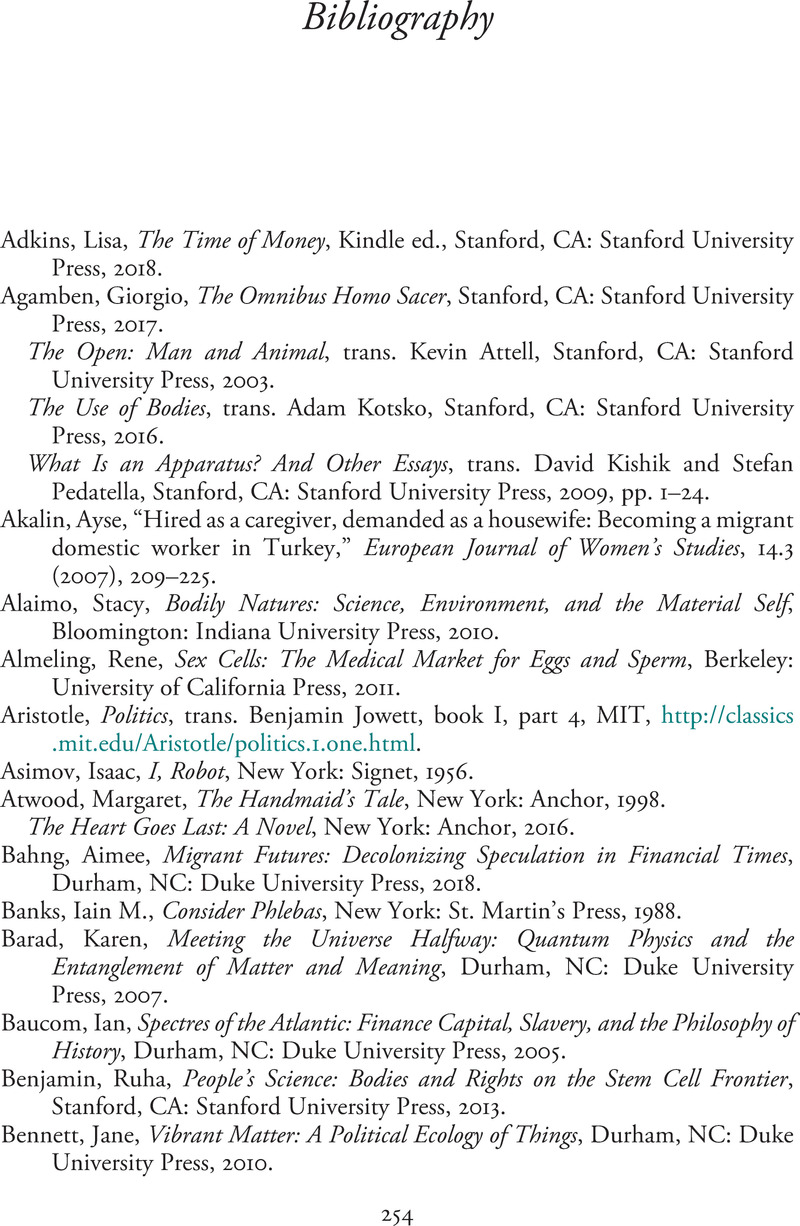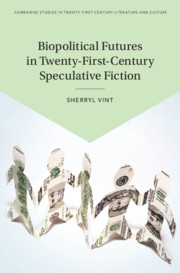Book contents
- Biopolitical Futures in Twenty-First-Century Speculative Fiction
- Cambridge Studies in Twenty-First-Century Literature and Culture
- Biopolitical Futures in Twenty-First-Century Speculative Fiction
- Copyright page
- Contents
- Acknowledgments
- Introduction
- Chapter 1 Suspending Death, Reinventing Life
- Chapter 2 The New Flesh
- Chapter 3 Capital Reproduction
- Chapter 4 Surplus Value
- Chapter 5 Life Industries
- Chapter 6 Living to Work
- Chapter 7 Life Optimized
- Chapter 8 Surplus Vitality and Posthuman Possibilities
- Conclusion
- Notes
- Bibliography
- Index
- References
Bibliography
Published online by Cambridge University Press: 16 September 2021
- Biopolitical Futures in Twenty-First-Century Speculative Fiction
- Cambridge Studies in Twenty-First-Century Literature and Culture
- Biopolitical Futures in Twenty-First-Century Speculative Fiction
- Copyright page
- Contents
- Acknowledgments
- Introduction
- Chapter 1 Suspending Death, Reinventing Life
- Chapter 2 The New Flesh
- Chapter 3 Capital Reproduction
- Chapter 4 Surplus Value
- Chapter 5 Life Industries
- Chapter 6 Living to Work
- Chapter 7 Life Optimized
- Chapter 8 Surplus Vitality and Posthuman Possibilities
- Conclusion
- Notes
- Bibliography
- Index
- References
Summary

- Type
- Chapter
- Information
- Biopolitical Futures in Twenty-First-Century Speculative Fiction , pp. 254 - 264Publisher: Cambridge University PressPrint publication year: 2021

